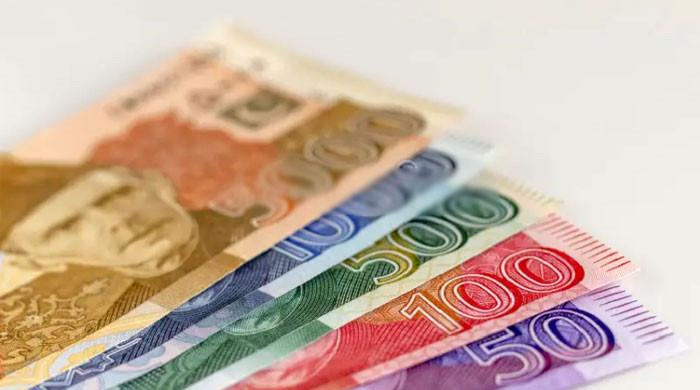Euro gains in Asia on German data
TOKYO: The euro strengthened in Asian trading on Wednesday, boosted by a surge in a closely watched German confidence index as markets look ahead to elections in debt-hit Italy.The common European...
February 20, 2013
The common European currency bought 125.69 yen and $1.3420 compared with 125.24 yen and $1.3390 in New York trade on Tuesday.
The dollar rose to 93.66 yen in Tokyo trade from 93.54 yen, as Japan released its worst-ever monthly trade deficit, underscoring the challenges ahead for the world's third-largest economy.
The German investor confidence index calculated by the ZEW economic institute soared to 48.2 points in February from 31.5 points in January, according to figures released Tuesday, its highest level since April 2010.
The reading beat market expectations for a more modest increase, stoking hopes that the eurozone could edge towards economic recovery this year.
"The euro was stronger, after the good ZEW survey result," National Australia Bank said in a note.
"Looking ahead, of increasing influence on the euro over the balance of the week is likely to be growing concern about the weekend/Monday Italian elections which carry some significant downside risk for the euro."
Opinion polls have shown former prime minister Silvio Berlusconi, who is running in his sixth election campaign, narrowing the gap ahead of the February 24-25 vote.
Outgoing Prime Minister Mario Monti has warned that the European Union fears Berlusconi's return because it is worried about a reprise of the days of lax financial discipline that could harm the eurozone.
The yen returned to its weakening trend on the back of discussions in Tokyo over future monetary policy and the role of the Bank of Japan.
Prime Minister Shinzo Abe and his Finance Minister Taro Aso have in recent days offered seemingly different interpretations about buying foreign bonds and changing the law governing the country's central bank.
Such bond purchases could push the yen down, as the bank sells the unit to buy foreign debt, and draw more anger from some critics, particularly in Europe, which has accused Tokyo of manipulating the currency. (AFP)











